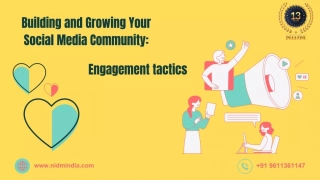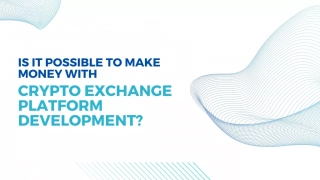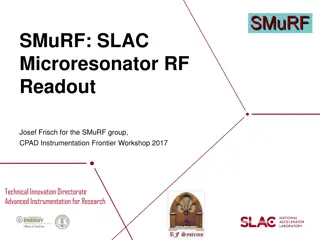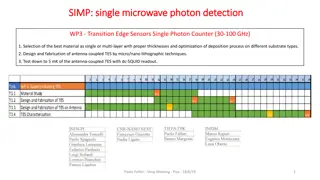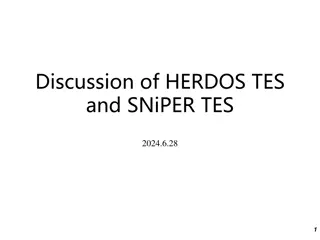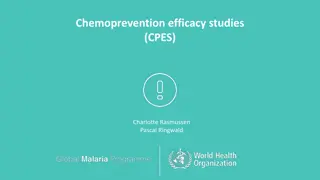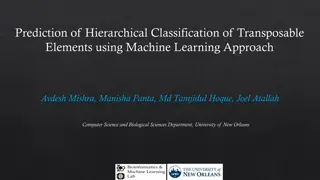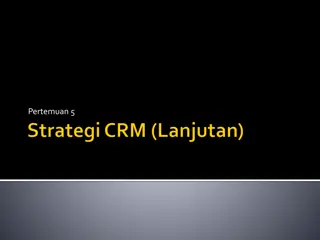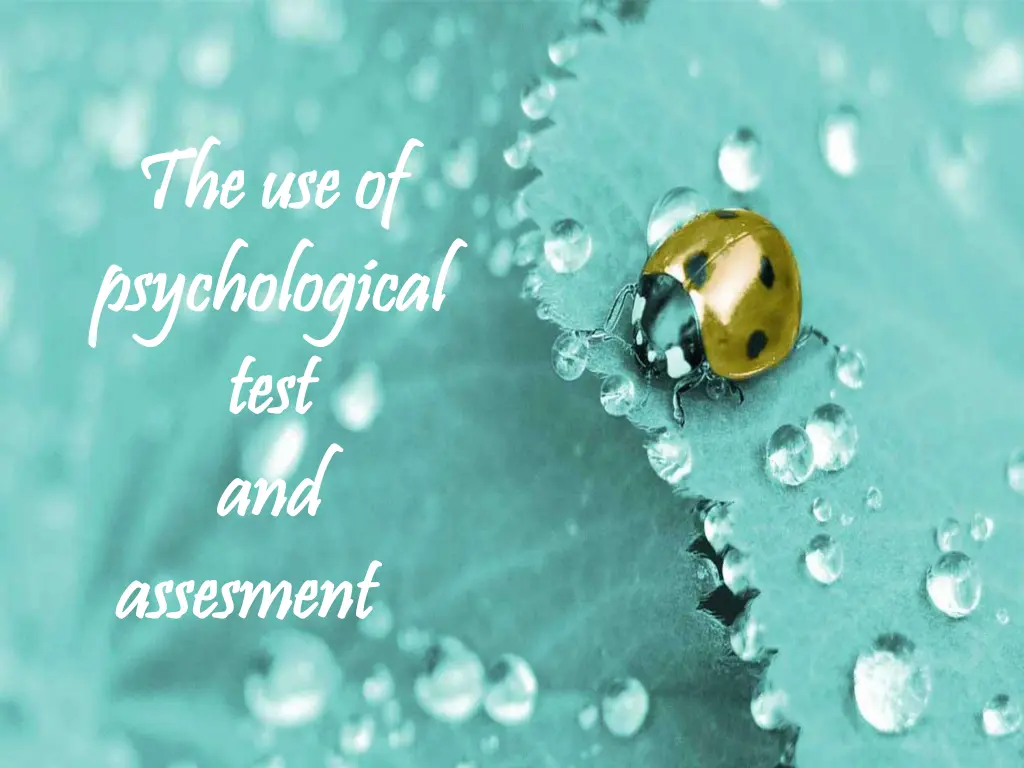
Understanding the Importance of Assessment in Education and Learning
Assessment is a crucial process in education that helps measure students' knowledge, skills, and abilities. It plays a key role in building confidence and fostering lifelong learning skills. This tutorial explains the distinctions between evaluation, testing, and assessment, highlighting the significance of assessment in ensuring students' success in the evolving work culture. Explore the importance, definitions, and goals of assessment in education through this informative guide.
Download Presentation

Please find below an Image/Link to download the presentation.
The content on the website is provided AS IS for your information and personal use only. It may not be sold, licensed, or shared on other websites without obtaining consent from the author. If you encounter any issues during the download, it is possible that the publisher has removed the file from their server.
You are allowed to download the files provided on this website for personal or commercial use, subject to the condition that they are used lawfully. All files are the property of their respective owners.
The content on the website is provided AS IS for your information and personal use only. It may not be sold, licensed, or shared on other websites without obtaining consent from the author.
E N D
Presentation Transcript
The use of The use of psychological psychological test test and and assesment assesment
When setting, testing are all used to measure how much of the assigned materials students are mastering, how well student are learning the materials, and how well student are meeting the stated goals and objectives. defined assessment, within an evaluation, educational and Although assessments only provide instructors with information on which to base a score or grade, assessments also help you to assess your own learning. you may believe that
Education distinctions evaluation, and testing. However, for the purposes of this tutorial, all you really need to understand is that these are three different terms for referring to the process of figuring out how much you know about a given topic and that each term has a different meaning. professionals between make assessment, To simplify things, I will use the term "assessment" throughout this tutorial to refer to this process of measuring what you know and have learned
Assessment is the process of A test An instrument or activity used to accumulate data on a person s ability to performed a specified task. It is an assessment intended to measure a test- taker s knowledge, skill, aptitude, performance, or classification in many other topics. documenting knowledge, skills, attitudes and beliefs, usually in measurable terms. The goal of assessment is to make improvements, as opposed to simply being judged. In an educational context, assessment is the process of describing, collecting, recording, scoring, and interpreting information about learning. Evaluation is an identification process to measure / assess whether an activity or program carried out in accordance with the plan or objectives to be achieved. Measurement Is a process of collecting data through observation empirical to gather information relevant to the intended purpose determined
Why is Assessment Important? Assessment Assessment helps you build confidence in your helps you build confidence in your ability to ability to learn learn Perhaps you have heard that the global work culture is changing. Unlike your grandfather, you will probably have a number of different jobs and careers during your lifetime. In order to be successful, you will need to have confidence in your ability to learn and you will need to become a lifelong learner. Assessment plays a key role in developing your confidence in your ability to learn, as well as in developing your lifelong learning skills.
Student Dialog - Learning to Bake Cookies
PURPOSE OF TEST & MEASUREMENT For getting knowledge about the progress. For preparation of effective planning. For knowing the abilities and capacities. For giving motivation. For knowing the achievements in future. For research and experimentations.
KINDS OF TEST Objective Test Subjective Test Individual Test Group Test Unstandardized Test Standardized Test
TYPES OF ASSESSMENT Formal Assessment Informal Assessment Formative Assessment Summative Assessment
5 W + 1 in psychological testing & assesment
Interview merupakan percakapan antara dua orang atau lebih dan berlangsung antara narasumber dan pewawancara. Tujuan dari wawancara adalah untuk mendapatkan informasi dan data-data lainnya melalui pertanyaan-pertanyaan yang dilontarkan kepada orang yang diwawancarai. berbagai pewawancara
Jenis Jenis Wawancara 1. Wawancara Tertutup : Wawancara tertutup ini bisa juga diartikan sebagai wawancara yang pertanyaan pertanyaannya terbatas jawabannya yang berupa pilihan. dan telah tersedia 2. Wawancara Terbuka : wawancara yang memiliki pertanyaan pertanyaan yang tidak terbatas atau tidak terikat jawabannya. 3. Wawancara konferensi : Wawancara konferensi adalah wawancara yang dilakukan oleh seorang pewawancara dengan sejumlah narasumber. 4. Wawancara Kelompok : Wawancara kelompok adalah wawancara yang dilakukan pewawancara kepada narasumber dan dilaksanakan pada waktu yang bersamaan. oleh sejumlah
5. Wawancara Individual : Wawancara Individual adalah wawancara yang dilakukan oleh seorang wawancara dengan seorang narasumber 6. Wawancara Terpimpin : Wawancara ini disebut juga dengan wawancara terstruktur. Wawancara jenis ini biasanya menggunakan beberapa pertanyaan yang telah disiapakan sebelumnya baik oleh pewawancara maupun narasumbernya. 7. Wawancara Bebas : Wawancara bebas adalah jenis wawancara yang pertanyaannya tidak dipersiapkan terlebih dahulu, spontan bergantung dengan suasana dan keadaan ketika kegiatan wawancara berlangsung.
Prinsip dasar Interview 1. Memiliki Tujuan Wawancara 2. Suasana lingkungan wawancara 3. Objektif 4. Hubungan 5. Jarak 6. Cara Duduk 7. Cara Pandang 8. Menegaskan Bahasa Verbal dan Nonverbal.
5W + 1H(Who, What, Where, When, Why+How) The 5W+1H method is a direct reference to the rules: "if you don't ask, you won't find out", "the problem well described is a half-solved problem". It is used in describing and analysing a given problem by answering 5 questions beginning with the W letter (What, Where, When, Who, Which) and 1 question beginning with the H letter (How). Due to the fact that all questions are open, i.e. none of them can be answered YES or NO, they do not allow to stick to one aspect of a given problem, but show different "sides of the coin". The 5W+1H method alone will not solve the problem, but it creates the conditions for the proper identification of the problem under analysis
Metode wawancara STAR situation Task Action Result A R S T Apa yang Anda lakukan untuk menyelesaikan tugas tersebut? Ceritakan pengalaman anda ketika diminta memimpin sebuah proyek! Apa tugas dan tanggung jawab Anda? Bagaimana hasilnya? setiap jawaban kandidat dapat digali lebih dalam (probing) dengan menggunakan kata tanya apa atau bagaimana untuk mendorong kandidat menjelaskan dengan lebih detil & mendorong sebuah refleksi pribadi atas tindakan yang diambil.
Contoh teks wawancara dengan narasumber : Tentang pencurian di rumah Pak Ahmad Wartawan : Pukul berapa, kejadiannya, Pak? Pak Ahmad : Kira-kira pukul 2 malam. Wartawan : Apa saja yang diambil pencuri, Pak? Pak Ahmad: Televisi, radio, VCD, dan laptop. Wartawan : Mengapa hanya barang elektronik yang diambil, tidak uang atau perhiasan? Pak Ahmad: Mungkin kalau pencuri itu masuk kamar, takut saya dan istri saya terbangun! Kan, repot kalau ketahuan! Wartawan : Oya, ini termasuk wilayah kepolisian mana, Pak? Pak Ahmad: Perumahan Permata Biru ini termasuk Kelurahan Sukarame Permata, Kecamatan Sukarame, wilayah hukum Polres Bandarlampung. Wartawan : Bapak sudah punya dugaan, siapa kira-kira pencurinya itu? Pak Ahmad: Lah, gak tahu, ya! Kalau sudah tahu, tentu saja sudah saya tangkap. Tapi melihat jendela yang rusak, seperti sudah tahu bahwa jendela dekat pojok sana engselnya rusak. Saya curiga, jangan jangan orangnya tahu rumah saya. Itu hanya kecurigaan! Yang jelas saya tidak menuduh siapa-siapa, takut menjadi fitnah! Fitnah, itu kan, dosa. Nanti sama dosanya dengan yang mencuri barang-barang saya ini! Wartawan : Bagaimana setelah kejadian itu? Trauma atau ada harapan untuk segera dituntaskan tindak kriminal ini! Pak Ahmad: Ya, trauma, sih, tentu saja! Baru pertama kali, kok, rumah dibobol pencuri. Ya, saya berharap pihak yang berwajib segera bertindak. Paling tidak, keamanan masyarakat terjaga, jangan sampai terulang lagi kejadian seperti ini.





